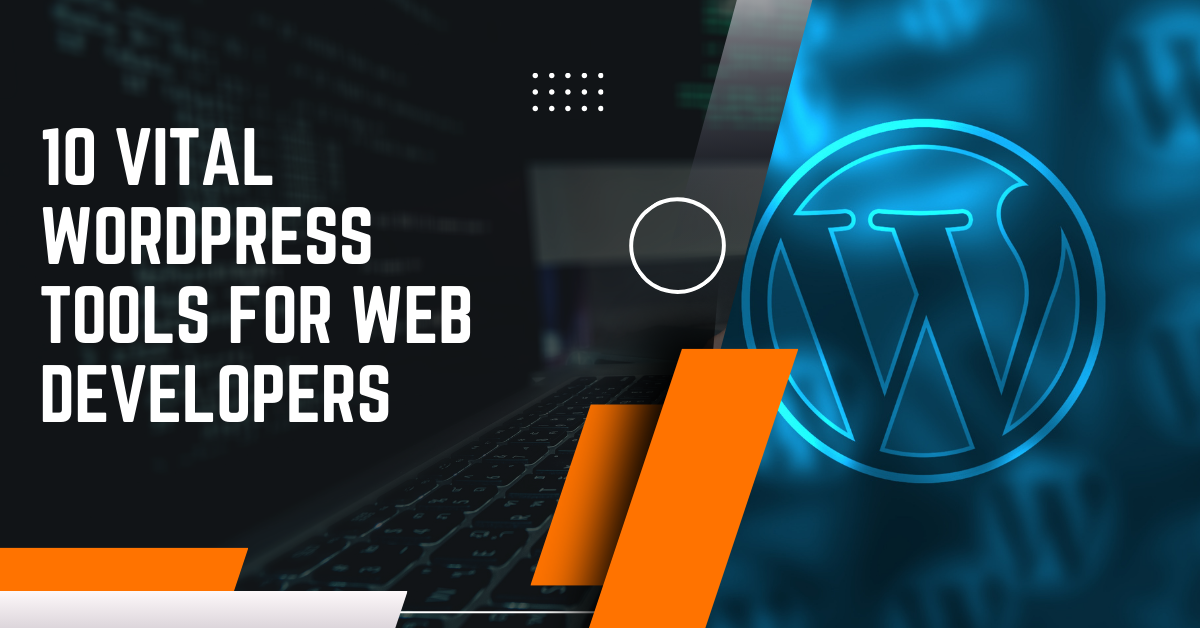
 9-Sep-2024
9-Sep-2024
The right tools can significantly simplify a developer’s work and enhance the efficiency of building a website, regardless of its complexity.
While many still view WordPress as just a basic site builder, it is, in fact, a comprehensive content management system (CMS). Sure, there are visual builders layered on top, allowing beginners to craft simple sites. However, achieving a professional, high-quality outcome requires adherence to specific structure, tools, methodologies, security, and performance standards. For this reason, using the right tools becomes essential, and this article will explore the key ones to support your development process.
It’s a popular tool for WordPress website development on local machines. The secret of its success is that it’s free and very easy to install and work with. A new site can be deployed within a few minutes; it can also use a blueprint, and you are ready to go with your new project. What is handy is that it has a Live Link feature, which makes the local website available on the Internet, so you can show the results to your team or client. Also, Image Optimiser, Link Checker, Instant Reload, and other add-ons and features are available to prepare the project for deployment.
Local WP is owned by WP Engine hosting and has an easy deployment feature to their live environment. However, there are no annoying advertisements.
InstaWP is a cloud-based development and staging environment with all the benefits that come with being cloud-based. With it, you can create new staging sites in seconds, share links to them with your team and clients, and edit databases or files with a single click. Additionally, you can connect existing live sites and manage them from one place. This includes not only installing or updating themes and plugins but also one-click access to their databases and files for quick edits.
In higher-tier plans, you can publish sites to live hosting multiple times a month, instantly sync them with staging, create teams, host sites for free, and even create WaaS (Website as a Service) to sell templates with hosting.
InstaWP is actively expanding and adding new features. While there is still much on the roadmap, what they currently offer is already quite impressive.
This is an incredibly useful plugin for staging and backup purposes. It completes tasks in just a few minutes, even for large sites. You can create staging sites and push changes back with a single click, make multiple copies, assign users, and select specific files to be copied.
The plugin offers backup scheduling and remote storage options, supports multisite, and generally performs reliably, unlike some other plugins that may halt mid-process or take hours to migrate. Although there is a free version, it is quite limited, so I consider it part of the “premium” category.
This suite is a comprehensive collection of plugins for building dynamic and complex websites without coding. It is also beneficial for smaller sites. The plugins integrate seamlessly with Elementor, Block Editor, and Bricks.
One of the most powerful plugins in this suite is JetEngine, which allows you to add custom post types and meta fields and display them on the front end in various layouts, including calendars, maps, and carousels. You can create custom dynamic loops to fetch these fields and objects, add new or edit default option pages, and use data from custom queries without any coding.
Additionally, JetEngine is a full-fledged REST API plugin that enables you to manage and display remote content easily.
Crocoblock also offers plugins for advanced filtering, booking, appointment scheduling, WooCommerce template customization, membership functionality, mega menus, and much more.
JetFormBuilder is one of the most feature-rich form plugins available, and its core functionality is offered in a free version, which is quite rare for this type of plugin. With it, you can create forms of any complexity and add numerous after-submit actions, such as calling webhooks, registering users, adding or updating posts, and more.
Beyond its core functionality, it provides powerful add-ons for recurring payments, WooCommerce checkout integration, form scheduling or setting expiration dates, generating PDFs, adding custom events, and more.
This plugin integrates seamlessly with all the Crocoblock plugins mentioned above. When used with JetEngine, it gains even more powerful features. For example, it can utilize dynamic tags, access glossaries, and options pages, generate post relations, or send data via REST API.
This online service is a time-saver as it generates code snippets for WordPress. It helps you create code snippets for new post types or meta box registration, custom widgets, plugin or theme code, bases for Elementor widgets, WooCommerce hooks, and much more.
Even if you enjoy writing PHP code, this tool will significantly speed up the process. Most of its functionality is available in a free plan.
This plugin serves as a large code snippet library. You can safely add your custom PHP, JavaScript, or CSS code to header, body, or footer areas and easily insert one of many ready-made snippets from the cloud library. Often, you can replace several small plugins with a simple piece of PHP code, thus reducing plugin overhead. This tool has all the necessary functionality to do this efficiently. It is very user-friendly; you can validate and debug custom code, set up snippet execution orders, minify JS, and automate workflows using WP-CLI.
While the free version is generally sufficient for custom code, a premium subscription is required to access the cloud library.
Query Monitor not only displays all the diagnostic information but also presents it in a user-friendly manner by grouping items by plugins or functions and alerting when something goes wrong. This makes it accessible even to beginners who may not be very familiar with code, giving them an idea of which element of their website might be causing an issue.
There are numerous invaluable tools available for WordPress developers that can not only streamline the website creation process but also enhance the overall quality of the final product. In this article, I have introduced you to some of the essential instruments for creating, deploying, monitoring, debugging, and testing websites. These tools are highly recommended and worth exploring.
Beyond the tools mentioned, the WordPress ecosystem is rich with resources that cater to various aspects of web development. From plugins that optimize performance and security to those that facilitate seamless content management and user experience enhancements, the options are vast and varied. Embracing these tools can significantly reduce development time, minimize errors, and ensure a smoother, more efficient workflow.
Whether you are a seasoned developer or just starting, integrating these tools into your development process can provide substantial benefits. They not only help in identifying and resolving issues promptly but also offer insights that can lead to better decision-making and improved website performance. So, take the time to explore these tools and see how they can elevate your WordPress development projects to new heights.


19-Sep-2025


9-Sep-2025


14-Aug-2025